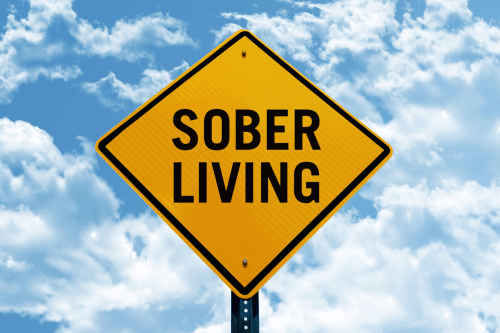

Drug addiction group therapy is one of the most effective tools used in treating substance dependence and substance misuse. At Sullivan Recovery in Mission Viejo, we use evidence-based practices to create a safe space where individuals receive peer support, build insight, and strengthen their recovery model. Research shows that community-based therapy boosts motivation, builds social skills, and improves long-term outcomes in addiction treatment.
Group therapy fosters a strong sense of community. This shared connection reduces shame and fear, allowing patients to open up about their struggles with addiction. Feeling understood by others with similar experiences increases self-confidence and emotional insight.
At Sullivan Recovery, peer support plays a major role in recovery. Community feedback helps each patient confront addictive behavior and thought patterns that feed substance abuse. This group dynamic builds empathy, reinforces coping strategies, and promotes behavior change.
We use a range of evidence-based models in our drug addiction group therapy. These include dialectical behavior therapy (DBT), contingency management, and cognitive-behavioral skill development. Each technique is supported by clinical trial data, systematic review findings, and outcomes tracked by organizations such as the American Psychological Association and the Robert Wood Johnson Foundation.
Dialectical behavior therapy improves emotional regulation and stress management. It also helps patients develop coping strategies, manage anger, and gain emotional insight, especially those with co-occurring disorders like bipolar disorder or depression. This therapy reduces the risk of relapse and improves overall mental health outcomes.
Contingency management uses positive reinforcement to reduce drug use. This method shows high efficacy across diverse populations, including those with opioid use disorder and amphetamine or methamphetamine dependence. Research data reveals a significant effect size in promoting behavior change, enhancing patient motivation, and supporting long-term sobriety through structured reinforcement and feedback.

Coping skills are essential for preventing relapse and managing daily stress. Group therapy offers real-time training in conflict resolution, anger management, and emotional regulation, which are critical in building resilience against substance misuse and addictive behavior. These skills are reinforced through behavior-focused strategies like dialectical behavior therapy, contingency management, and other methods supported by clinical trial data and systematic reviews.
These skills are especially important for patients facing anxiety, depression, or bipolar disorder alongside addiction. Group therapy provides structured education and a safe space where participants can express emotions like shame, fear, and frustration without judgment. By practicing these skills in a supportive community, patients gain confidence, develop empathy, and begin to see a clear path forward in their recovery model.
Therapists use group exercises to help each participant explore new ways of thinking and reacting. This process is guided by data-driven reinforcement techniques and motivational strategies recognized by organizations like the American Psychological Association and the Robert Wood Johnson Foundation. With regular feedback, patients develop healthier habits that reduce the risk of substance misuse, support sobriety, and enhance overall mental health, social skills, and emotional insight.
Clinicians guide each session, ensuring safety, structure, and therapeutic focus. A licensed therapist facilitates group discussions, monitors patient feedback, and adjusts the session based on participant needs. Therapists use motivational interviewing to increase participation and reduce treatment resistance.
At Sullivan Recovery, therapists are trained in treating both substance abuse and co-occurring disorders. Their clinical skill ensures that each group addresses core emotional issues like shame, anger, and fear. This approach aligns with standards from the American Psychological Association and other leading bodies in internal medicine and mental health.

Many patients in drug addiction group therapy have dual diagnosis. This means they struggle with both substance use disorder and mental health conditions such as schizophrenia, depression, or PTSD. Treating both issues at once improves outcomes and reduces relapse risk by integrating behavior change and evidence-based recovery models.
Group therapy helps patients explore how their thoughts, feelings, and behaviors are connected. Therapists incorporate dialectical behavior therapy and stress management strategies, which are proven effective in both clinical trial and systematic review data. As patients share experiences involving anger, shame, and fear, they build empathy, gain motivation, and strengthen their coping skills through peer support and structured conversation.
The insight gained through group therapy supports deeper recovery and long-term sobriety. These sessions also reduce bias and stigma by offering a safe space where feedback and education promote understanding. With reinforcement from clinicians trained in internal medicine and addiction, patients with dual diagnosis see improvements in confidence, productivity, and physical fitness.
We offer substance-specific group therapy for patients with opioid use disorder, methamphetamine addiction, and those on methadone maintenance. These sessions focus on the unique challenges of each substance, offering relevant information and support that aligns with data from the American Addiction Centers and other peer-reviewed sources.
Patients learn about the effects of drugs on brain chemistry and behavior, including the role of sedatives, amphetamines, and other substances in addictive behavior. Therapists guide discussions around withdrawal symptoms, medication, and reinforcement techniques used in contingency management. Education and skill-building in these groups improve patient outcomes and reduce the risk of relapse, especially when integrated with behavior-focused treatment plans.
Group support reduces the shame often associated with specific drugs and provides a safe space to process feelings and experiences. These sessions also help patients and parents navigate guilt, fear, and the emotional weight of substance dependence. Through brainstorming, goal setting, and therapist-led insight, patients leave with a clearer perception of their addiction, increased empathy, and a renewed commitment to sobriety.
Open conversation allows patients to express emotions such as guilt, fear, and gratitude. This expression is crucial for breaking the cycle of addictive behavior and developing self-awareness. Emotional insight often leads to improved motivation and reduced substance craving.
Group feedback also helps patients shift their perception of self and addiction. They begin to see their past behavior through a new lens, one that fosters growth rather than shame. This change in thought pattern supports emotional healing and lasting recovery.

Addiction often damages relationships and impairs communication. Group therapy trains patients in social skills like active listening, nonverbal cues, and assertive speech. These tools help patients repair family bonds and build new, healthier relationships.
At Sullivan Recovery, we use role-playing, brainstorming exercises, and peer-led sessions to reinforce these skills. Group interaction reduces bias and challenges unhelpful beliefs, helping each patient grow in confidence and connection.
The effectiveness of drug addiction group therapy is backed by decades of research. Randomized controlled trials have consistently shown its efficacy in treating both substance abuse and dual diagnosis. Evidence from sources like the Robert Wood Johnson Foundation and Guilford Press supports its wide use.
Data from these studies shows a significant effect size in reducing relapse rates and improving long-term outcomes. Group therapy is also more cost-effective than many individual treatments, making it accessible to a wider range of patients.
Addiction is often driven by habit. Group therapy addresses the triggers, routines, and reinforcement cycles that sustain substance use. Through structured discussion, patients break these cycles and build new, healthier routines.
Therapists use real-world examples and data-driven techniques to help patients replace harmful behavior with positive habits. Over time, these changes support physical fitness, emotional stability, and increased productivity.
Many patients enter therapy with deep shame and fear. Group therapy creates a safe space for honest conversation, emotional release, and self-discovery. Participants learn that vulnerability is a strength, not a weakness.
As trust grows, patients begin to share more openly. This sharing fosters deeper understanding, reinforces connection, and reduces the isolation that often fuels substance misuse. The result is a supportive environment that strengthens each person’s recovery model.

Family members often attend parallel group sessions to understand the recovery process. These sessions offer education, support, and a chance to discuss parenting concerns. Family participation improves outcomes and supports the patient’s return to a stable home environment.
Parents gain tools to manage stress, set boundaries, and offer constructive support. They also learn how to reduce conflict and reinforce healthy behavior in the home. At Sullivan Recovery, we encourage this involvement as part of our whole-person approach.
Stigma can block recovery. Group therapy challenges this by offering positive reinforcement, peer validation, and shared understanding. Patients begin to see themselves not as failures, but as people in active recovery.
This new identity promotes confidence, increases treatment adherence, and reduces relapse risk. The group becomes a protective buffer against outside judgment and internalized shame. It fosters gratitude, growth, and hope.
Progress is tracked through behavior change, emotional insight, and group participation. Patients often set weekly goals and receive feedback from the group. This accountability strengthens motivation and increases follow-through.
Therapists also use standardized assessments and patient feedback to guide treatment. These tools provide clear information on progress and allow for real-time adjustment. This clinical rigor ensures every session is impactful and aligned with patient needs.
Drug addiction group therapy is more than a treatment—it’s a path to lasting sobriety, stronger social skills, and improved mental health. At Sullivan Recovery in Orange County, we provide a safe, evidence-based environment for healing. Through peer support, skill training, and clinical insight, each patient builds the tools needed to change their life.
Our group therapy programs are grounded in research, reinforced by therapist guidance, and shaped by community. Whether facing opioid use disorder, methamphetamine addiction, or dual diagnosis, group therapy offers hope, support, and a clear path forward.
If you or someone you know is struggling with substance abuse, contact Sullivan Recovery today. Let our team help you regain control, find your community, and begin your journey to long-term recovery.
At Sullivan Recovery, as an in-network provider we work with most insurance plans, such as:
And More
If you or a loved one are struggling with mental health challenges or substance abuse, reach out to Sullivan Recovery today. Our team of compassionate professionals is here to support your journey towards lasting well-being. Give us a call at 949-836-7180.
Group therapy duration can vary depending on the treatment program and patient needs. Most sessions last between 60 to 90 minutes and occur 1 to 3 times per week. Some patients attend for several months or longer as part of ongoing outpatient treatment at Sullivan Recovery.
Yes, group therapy can be combined with individual therapy for greater effectiveness. Many patients benefit from both settings, using individual sessions for personal insight and group sessions for community support, feedback, and skill practice.
Participation is encouraged but not forced. Patients can observe at first and share when they feel ready. Over time, most people find that speaking up helps reduce fear and builds confidence in a safe, supportive environment.
Yes, group therapy is highly effective for adolescents and young adults. Age-specific groups help younger patients connect over shared experiences, learn age-appropriate coping skills, and build social skills essential for long-term recovery.